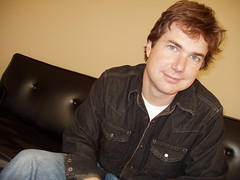
In about 381 AD a Christian woman named Egeria set out on a pilgrimage to Jerusalem from her native Spain, and wrote a travel-journal of her experiences. Among the other wonders of her story (it's still in print, by the way) is what she reports about how ancient Christians conducted their public worship services. Now, nothing that's old is worth repeating merely because it's old, but getting a viewpoint from a different millenium and a different culture has its value. And what the early Christians seemed to value was the Psalms. For example, the basic daily morning services she would have encountered in Jerusalem opened with either Psalm 50 and 51 or 62 and 63, then several other variable Psalms were read (or sung), then an Old Testament "canticle" (like a Psalm), then Psalms 148-150, followed by various prayers and a blessing. While the services she attended had been heavily influenced by "monastic model" worship practices and their even heavier Psalmody, these "cathedral model" services of the average Christian were very Psalms-rich.
What's great about the Psalms? They marry theology and poetry, doctrine and personal experience, and model how the whole range of human emotions can be expressed to God through through prayer. The Pslams teach us how to pray, and praying them ourselves gives us words to say to God that we might have difficulty expressing on our own. Since the Psalms are also inspired by the Holy Spirit, they are God-endorsed guides that we can trust, and keep us from being lopsided in our own self-made prayers. For example, praying the Psalms over time keeps us well balanced between praise, thanksgiving, repentance, and requests for God's help.
Christians have the advantage (and duty!) of praying the Psalms in light of Christ -- which will help us to make use of many Psalms that might otherwise seem too locked-in to an ancient time and place. Here are few tips: When there is a dialogue between "the king" and "the LORD" in a Psalm, think about Christ as that king. While David was the historical king who wrote the dialogue, Christ is the "Greater David," and many of these Psalms amazingly illuminate Christ's relationship with the Father, especially while he was on earth and depending on his Father while on the way to the cross. We can worship as we rehearse how Christ was in league with his Father in their joint project to save their people. Another tip: when the Psalmist calls out to God for the destruction of his enemies, remember that the three main enemies of the believer in this life are sin, death, and the harassment of the devil. While David had earthly enemies who he could pray against very strongly because of his particular call by God to maintain an earthly kingdom, we are citizens of Christ's spiritual kingdom that is presently more concerned about spiritual enemies. So, don't pray brimstone down on your cranky office-mate, but do pray it down on your own sin-nature and the work of the devil in the world. Again, when the Psalmist praises God for his rescue of his people at the Red Sea, remember that the Exodus is a foreshadowing of Christ's greater rescue at the cross -- realizing this will allow you to use many Psalms word-for-word while praising God for the greater Exodus by which he saved us. Likewise, the Psalmist warnings against abandoning God in the Sinai desert can be read as a warning to the church to not forget the God who has brought them into such freedom through Christ. With a few such New Covenant adjustments to our interpetation, we can see why the Psalms are just as useful for the Christian as they were for Jews before Christ.
Now a very practical idea. If you'd like to go through Psalms in a month, read the Psalm that has the number of the current date, as well as the current date plus 30, 60, 90, and 120. So, on June 22, you'd read Psalm 22, 52, 82, 112, and 142. That's a lot in one day, but still less than a lot of Egeria's new friend's were reading! Personally, I'd say to go slow and try to pray as you read. There's no shame in taking ten or more minutes per Psalm (or even an hour). You only might finish one Psalm in a sitting, but at least you're on your way. Enjoy meeting God through his own words!

No comments:
Post a Comment